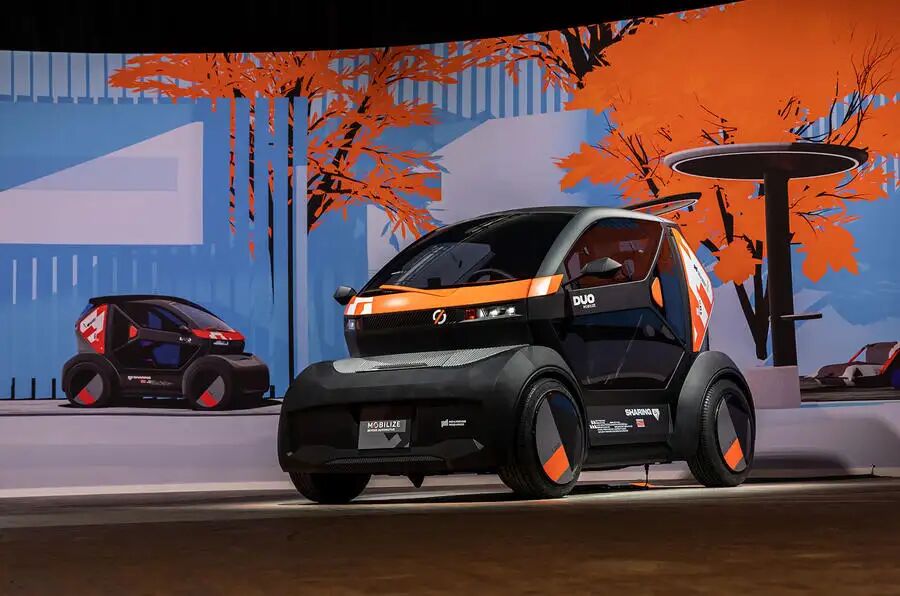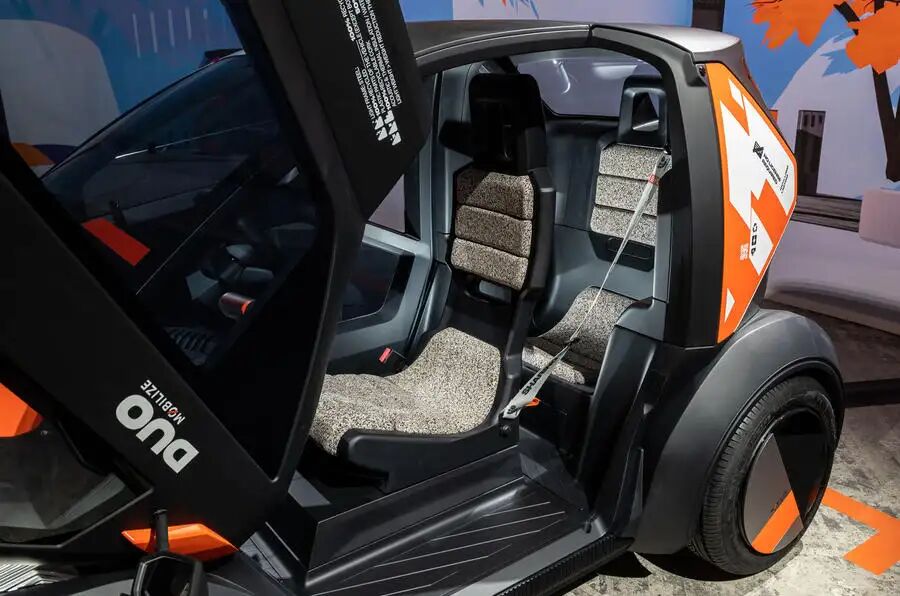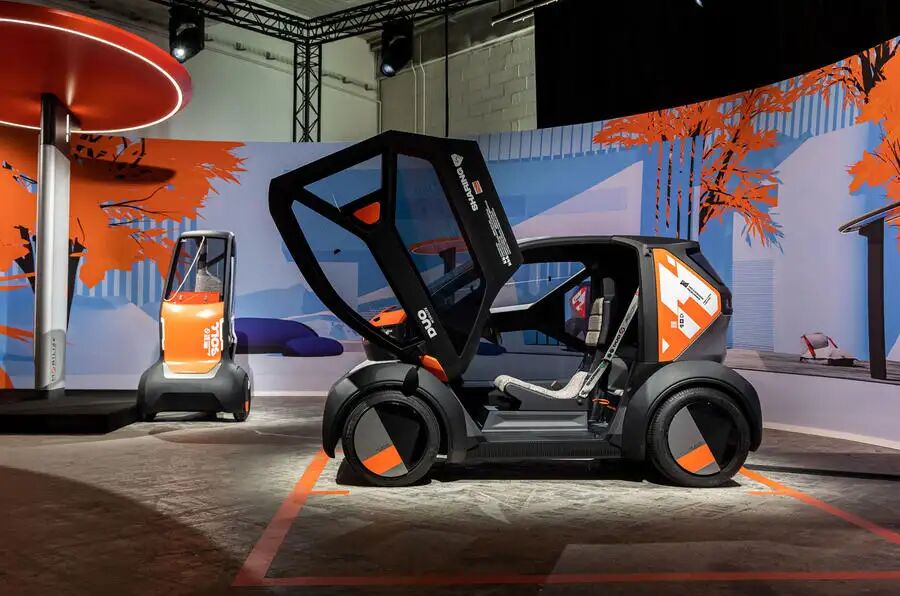Mobilize division to become a huge part of Renault Group revenue in Europe, with its own EVs, chargers and subscription packages.
The Renault Group expects its newly hived-off electric mobility venture, Mobilize, to account for a significant 30 per cent of its total turnover by 2030 – and it has unveiled a raft of new products and initiatives aimed at cementing the brand as a leading name in the field of “everything beyond automotive”.
Mobilize will launch new charging stations, servicing programmes, unique zero-emission transport solutions and innovative vehicle remanufacturing programmes with a view to facilitating the mass shift away from traditional vehicle propulsion and ownership systems – and reducing the cost to the environment while doing so.
Spearheading the brand’s launch on the product side is the Duo, an urban EV in the mould of the pioneering Renault Twizy. The Duo has a compact footprint and tandem seating arrangement that allows three of them to park side by side in one regular parking space. It also features scissor doors to minimise the space needed in car parks.
Unlike the similarly conceived Citroën Ami, the 1300mm-wide Duo cannot be bought outright. Instead, it will be available either for a few minutes or hours at a time via a dedicated app, or for lengthier periods (upwards of three months) through a web-operated subscription service, which will also be used to manage servicing and upkeep. This latter service caters particularly to commercial operators in city environments, with the options of branded body panels and a 700-litre rear cargo box – in the single-seat Bento version – helping to enhance its appeal to business customers.
The newly unveiled cabin is designed to be “intuitive for everybody” and, although spartan, is competitively equipped for the purposes of intensive use in busy environments. It includes a smartphone holder, USB-C charger and Bluetooth functionality, as well as overthe-air compatibility that can be used to update the operating system. For example, the speed can be capped in certain areas if limits are introduced.
Two Duo versions will be available, one limited to 45km/h to comply with less stringent L6 quadricyle regulations and another capable of 90km/h. Both are capable of an 140km range and gaining 90km of charge in three hours from a domestic charger.
Mobilize will reveal prices closer to the late-2023 arrival date in Europe but electric mobilities deputy director Corinne Pakey told Automotive Daily Network partner Autocar: “We want to be affordable but competitive – with a full package”, hinting at the potential for Mobilize to generate significant revenue through various platforms.
With a comprehensive refurbishment programme in place, Mobilize expects a usable lifespan in excess of 10 years for the Duo and says that on retirement, around 95% of the car’s components can be recycled.
As the name suggests, the Solo is a single-person EV designed for low-distance urban travel – cleverly packaged to offer manoeuvrability on a par with a conventional scooter but with improved safety and comfort.
Designer Patrick Lecharpy said the brief was all about “reducing the footprint on the road needed to allow one person to move around the city”. To which end, the Solo takes up far less space than even the Duo, weighs just 70-80kg and tops out at 25km/h.
Asked why Mobilize opted for a 2+1 three-wheel design, rather than a conventional two-wheel arrangement, Lecharpy said: “We want to be as inclusive as possible, and two wheels isn’t for everyone.”
It is closed off on only one side to save weight and steers from the rear to minimise the turning circle. Mobilize also claims the Solo will be capable of wireless charging but has yet to give any numbers detailing its range or top-up times.
Fast-charging hubs
Charging hubs will play a fundamental role in supporting users of Mobilize EVs while introducing the brand to customers of other marques.
By mid-2024, Mobilize will activate 200 self-branded fast-charging hubs at Renault dealerships across France, Belgium, Italy and Spain, before expanding into other European markets. There will be six 100kW chargers per station, which will each be sited less than five minutes from a motorway, be open 24/7 and provide a lounge-style waiting area. Repurposed batteries from end-of-life EVs will be on hand to provide additional energy storage, to keep charging speeds consistent at busy times, while integrated solar panels will contribute to the supply to reduce strain on the grid during peak hours.
Crucially, the chargers will be compatible with all EVs, rather than just those from the Renault Group, although the firm has hinted that brand users will have access to cheaper rates.
Portable charging stations
New sheltered charging devices have been conceived with a similar objective to the Solo and Duo: to facilitate urban electric motoring while exacting minimal impact on the environment.
According to Mobilize, urban planners want to use the opportunity of vehicle electrification to make their cities a more pleasant place for all – not just road users.
Created with street furniture designer Patrick Jouin, the Ileo chargers reflect Mobilize’s belief that “energy has to be mobile, nomadic” and, as such, can be easily moved around for the purposes of exhibitions, events and fleet management – with customers able to order as many as needed.
Felix Page






